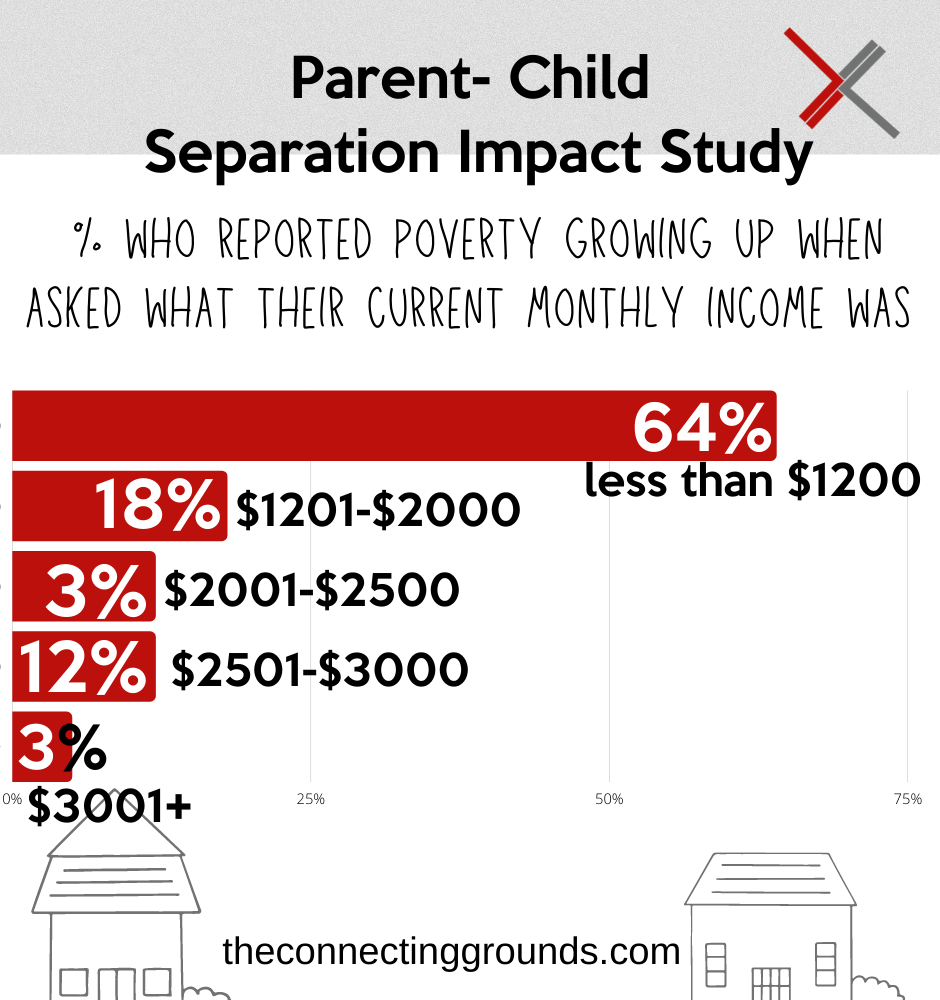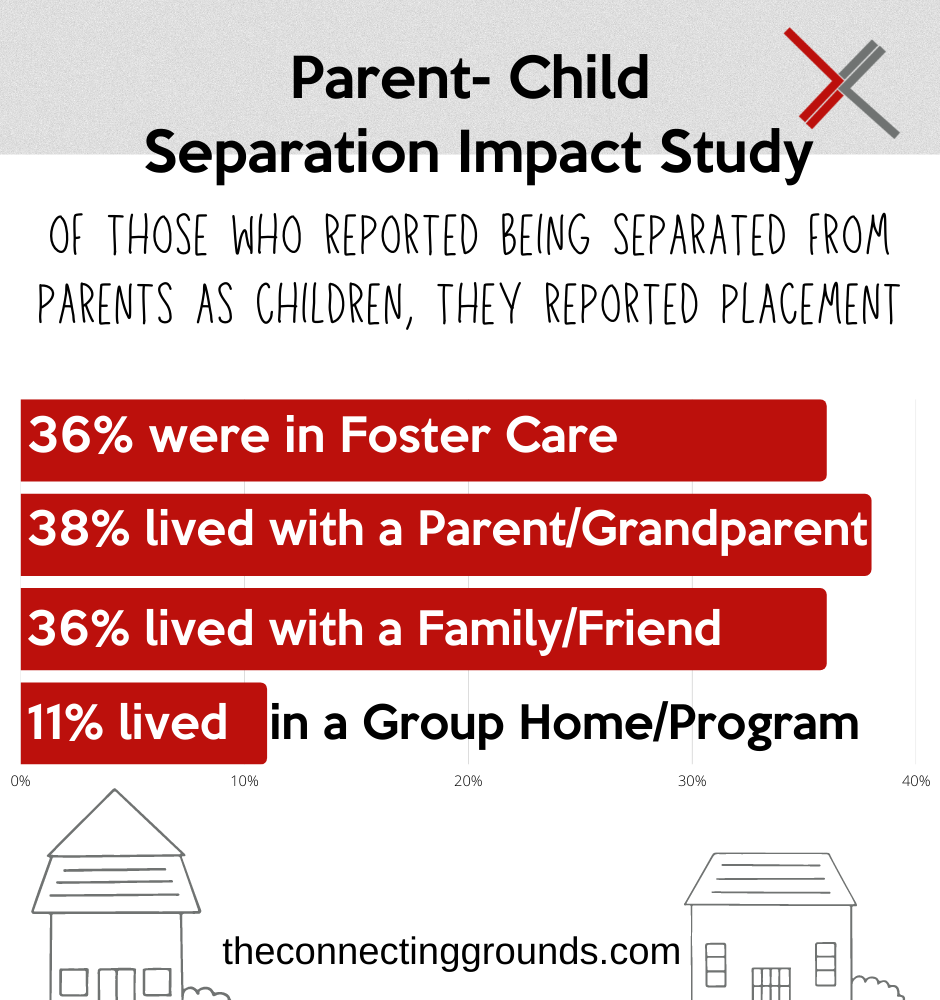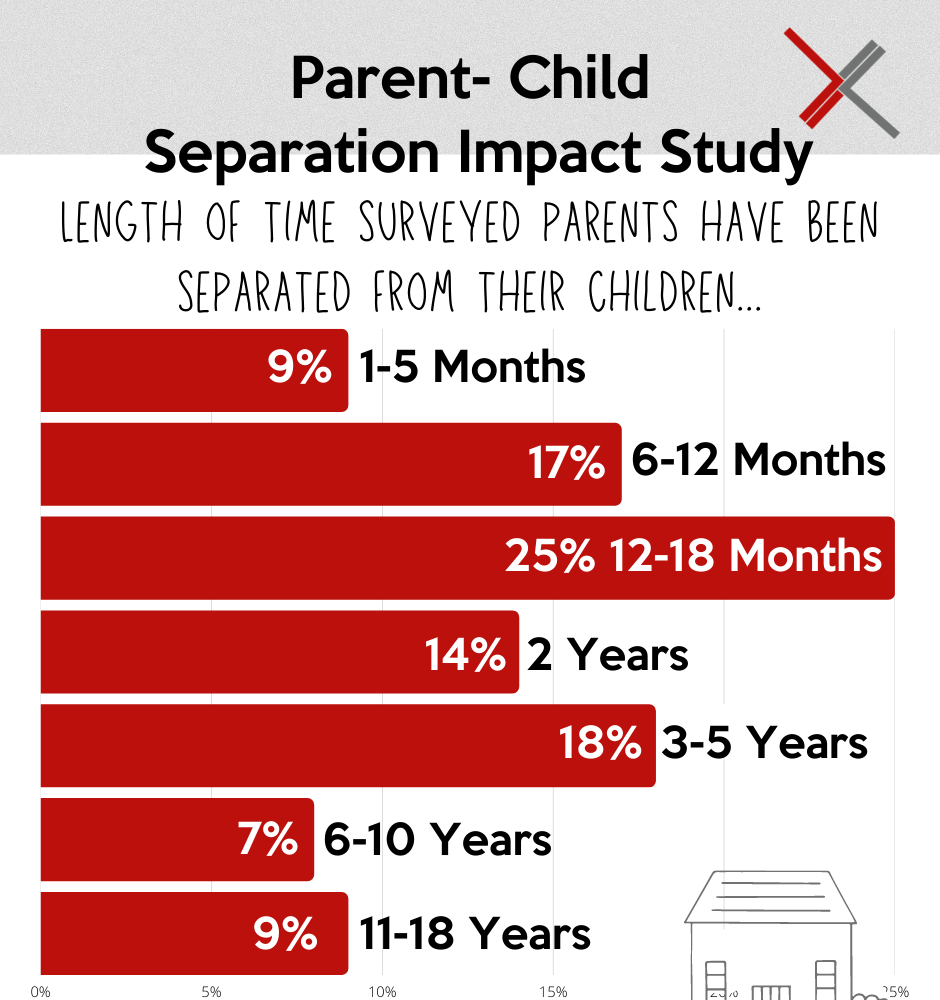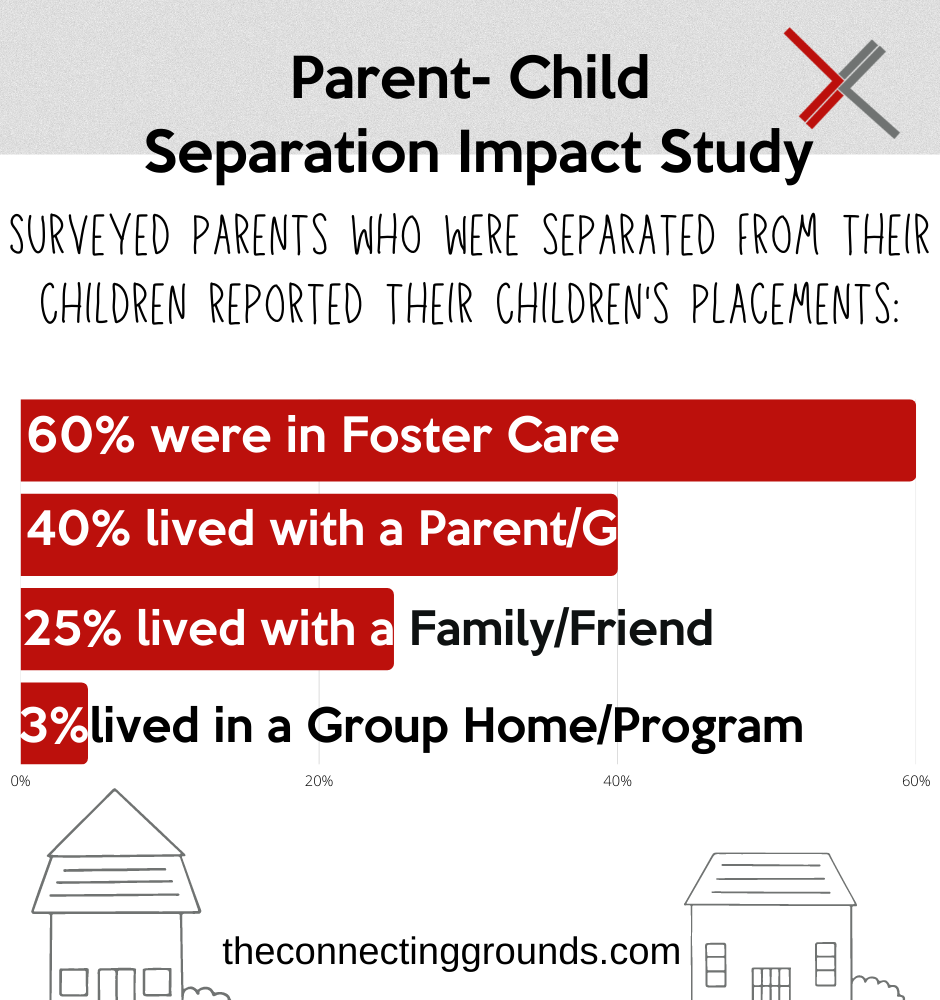2022 Parent/Child Separation Impact Study
This study sought to explore how a person’s economic experience and instances of parental separation growing up impacted their own life experience as an adult and a parent. It was our goal to explore and document data that could help us better understand generational trends and how they are impacting families, social services needs, and our foster care system in our community.
To collect this data 103 adults who identified as a parent through our Family Connection program, at the Outreach Center, or with other local organizations were asked to complete an interview. Below are the results of our findings:
Of the 72 who grew up in poverty, 46 of them (64%) reported still struggling with poverty by making $1200 a month or less currently as an adult.
Generational Poverty
Length of Separation
We asked in our interviews how long individuals that were separated from their parents remained separated.
It is important to note that of the separations that lasted longer than one year (39 respondents):
3% were upper class
10% were middle class
87% were at or below poverty
The 103 adults that were interviewed were asked to describe their economic situation growing up. Overwhelmingly, 72 of the 103 (70%) of those interviewed identified as growing up in poverty.
Economic Background
The majority of individuals (by a small margin) that we interviewed reported that they had been separated from their parents while growing up.
54% were separated from their parents.
46% were not separated from their parents.
When we dug further into the data, and looked at the percentages of being separated from parents by economic levels we discovered the strong connection to poverty and separation.
Separated from Parents
Other notable findings about those separated from their parents while growing up:
36% of those who were separated from their parents while growing up had been in a single parent home.
13% of those who were separated from their parents while growing up had experienced homelessness.
40% of those who were separated from their parents were also separated from their siblings while growing up.
72% of those separated from siblings were at or below the poverty line.
18% of those separated from siblings were middle class.
10% of those separated from siblings were upper class.
Of the 103 people interviewed, 77 experienced separation from their children as a parent.
Those 77 equated to 75% of those interviewed, the other 25% have not experienced separation from their children as a parent.
It is important to note that not all family separations are the result of child abuse. In fact, there were a variety of reasons that led to individuals being separated from their parents while they were growing up.
Reasons for separation from children.
The data clearly illustrates a connection between those who experienced separation from their parents growing up being more likely to be separated from their own children as a parent due to a wide variety of factors.
Impact of Separation on Separation
Of those that we surveyed:
44% of separations are not yet resolved.
29% of separations ended in permeant separation.
27% of parents separated reunified.
Of the cases that ended in permeant separation from their children- 50% were separated from their parents while growing up.
Barriers to reunification
In our community, the biggest barrier to separated families being able to reunify together is shelter. With waiting lists for family housing being 2-4 years long.
Experiences for parents after being separated from children.
Separation is traumatic for parents, many of whom experience a wide variety of struggles.
Experiences for children after being separated from parents
The trauma of being separated from parents can have life-long impacts on children.
As national data suggests, having at least one positive person in your life can help to lessen the impacts of trauma. It is clear from this study how critical it is for parents to have a positive support system in their life to support them.
Role of Positive People in Parenting
Notable data connected to homelessness:
9 individuals reported aging out of the foster care system, of those 78% experienced homelessness as an adult.
65 total people reported experiencing homeless as an adult, of those 57% (37 people) were separated from their parents when growing up.
21 people reported having been in a foster home or group home while separated from their parents growing up, of those 67% experienced homelessness as an adult.
10 people reported being homeless as a child, of those 50% experienced homelessness as an adult. This same 50% also all reported being separated from their parents when growing up.














